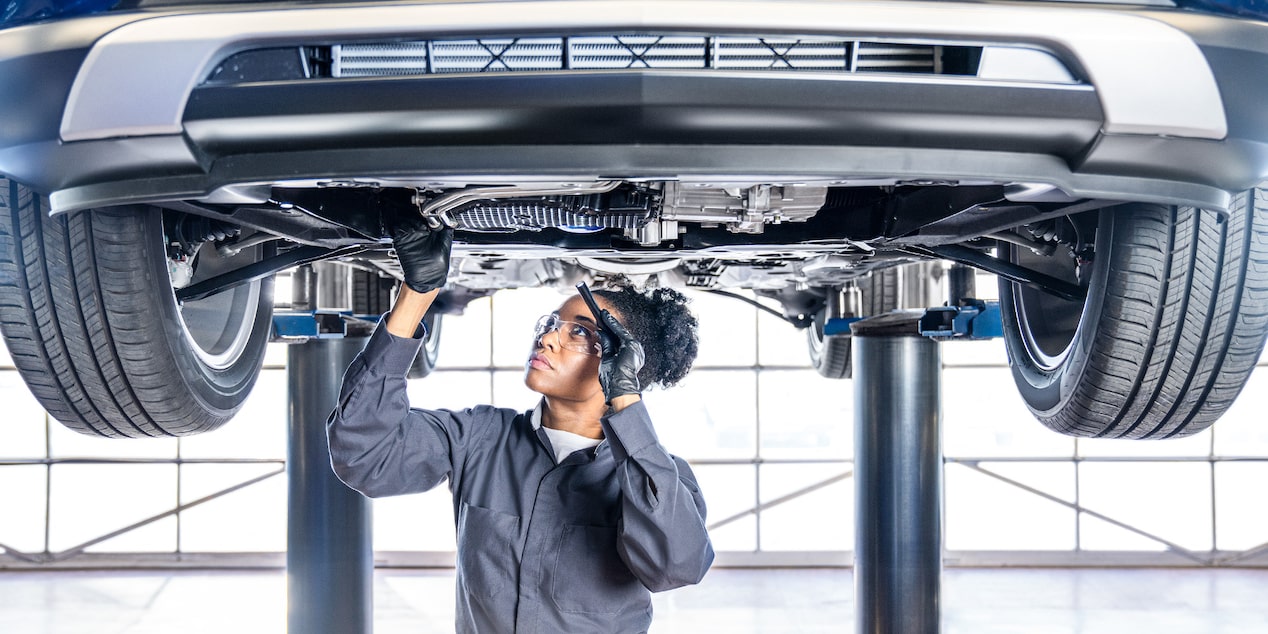All Categories
Featured
Brakes are probably the most essential security function of any automobile. Without trustworthy brakes, also the most powerful car can end up being a danger on the roadway.
- The Significance of Regular Brake Inspections. Brakes go through continual wear and tear with every use, whether you're driving at broadband on the freeway or travelling with city streets. With time, brake pads, rotors, and other components use down, which can influence stopping efficiency. Without routine evaluations, you may not observe the gradual decrease in performance up until it's far too late.
Regular brake evaluations enable you to capture issues early, making sure that your brakes remain responsive, trusted, and secure. Prompt inspections can likewise save you money by resolving minor concerns prior to they come to be pricey repair services.
- Typical Signs That Your Brakes Required Focus. While regular brake inspections are essential, there are some caution indicators you can look out for to know when it's time to set up a check-up:
Squealing or Grinding Seems: High-pitched squeaks or grinding sounds when applying the brakes are typically indicators that your brake pads are broken and require replacement. Vibration or Pulsation: If you really feel vibrations in the steering wheel or the brake pedal, it can show warped rotors, which may require resurfacing or replacing. Soft or Spongy Brake Pedal: If the brake pedal really feels unusually soft or mushy, there might be air in the brake lines or a problem with the master cyndrical tube. Pulling away: If your vehicle draws to one side while stopping, this could be triggered by uneven brake pad wear or an issue with the brake liquid. Enhanced Quiting Range: If it takes longer to quit than usual, it might suggest that the brake pads are put on, the fluid is low, or the rotors are damaged. If you see any one of these signs and symptoms, it's ideal to have your brakes evaluated immediately.

- Trick Elements Checked During Brake Inspections. Throughout a brake examination, a professional will certainly inspect numerous critical parts of the braking system to make certain whatever is functioning correctly. Here are the vital elements entailed:
Brake Pads: One of the most common factor for poor braking efficiency is worn-out brake pads. Evaluating the thickness of the pads is a top priority during every assessment. Brake Rotors: Blades need to be smooth and complimentary of grooves or cracks. Any type of significant damage to the blades can lead to endangered braking efficiency and irregular pad wear. Brake Liquid: Low or polluted brake liquid can harm braking efficiency. The specialist will examine the fluid degrees and quality and change it if required. Brake Lines and Tubes: Brake lines need to be devoid of leaks or cracks. Any type of damage to the lines can lead to loss of brake liquid, bring about brake failing. Brake Calipers: The calipers use stress to the brake pads. They should be examined for indicators of wear or leaks to guarantee they are operating appropriately. Consistently examining these parts assists maintain your brake system in peak problem, allowing you to stop your vehicle safely and successfully.
- Just how Frequently Should You Have Your Brakes Evaluated? The basic recommendation is to have your brakes inspected at least when a year or every 12,000 miles, depending upon your driving behaviors. Specific driving problems might require even more constant examinations:
Rush Hour: If you frequently drive in stop-and-go traffic, your brake pads will use down quicker. Mountain Driving: Driving on high roads requires even more constant braking, which can trigger your brakes to wear faster. Towing or Hauling Heavy Plenties: If you consistently lug hefty lots, your brakes will experience more stress and require even more regular examinations. If you notice any of the warning signs pointed out previously, do not await the next scheduled examination-- have your brakes checked promptly.
- The Effects of Neglecting Brake Inspections. Neglecting routine brake assessments can bring about significant repercussions. A falling short brake system could lead to reduced stopping power, which enhances your threat of mishaps. Disregarding brake upkeep can additionally result in a lot more pricey repairs. As an example, if you postpone changing worn brake pads, the damage can prolong to the blades, bring about the demand for blades substitute, which is a far a lot more pricey repair service.
In the most awful instance, driving with harmed brakes can lead to complete brake failure, placing you and various other motorists in jeopardy. Routine brake inspections are a little financial investment that can conserve your life and stop costly fixings.
- Verdict: Stay Safe with Regimen Brake Inspections. Brakes are not something you wish to take possibilities with. A reputable stopping system is essential for secure driving, and regular brake inspections are a simple means to guarantee that your vehicle quits when you require it most. By staying on top of brake maintenance, viewing for alerting indicators, and having your brakes checked at the suggested intervals, you'll safeguard both your automobile and your safety and security.
Don't wait until your brakes start to fall short-- schedule normal brake assessments and maintain your automobile in ideal condition for several years to come.
Latest Posts
Explore Cost-Effective Auto Repairs with Montclare’s Exclusive Service Specials
Find Out Save Big on Car Maintenance with Montclare Auto Repair’s Exclusive Deals
Reliable Overhead Door Solutions for Homes and Organizations
More
Latest Posts
Explore Cost-Effective Auto Repairs with Montclare’s Exclusive Service Specials
Find Out Save Big on Car Maintenance with Montclare Auto Repair’s Exclusive Deals
Reliable Overhead Door Solutions for Homes and Organizations
